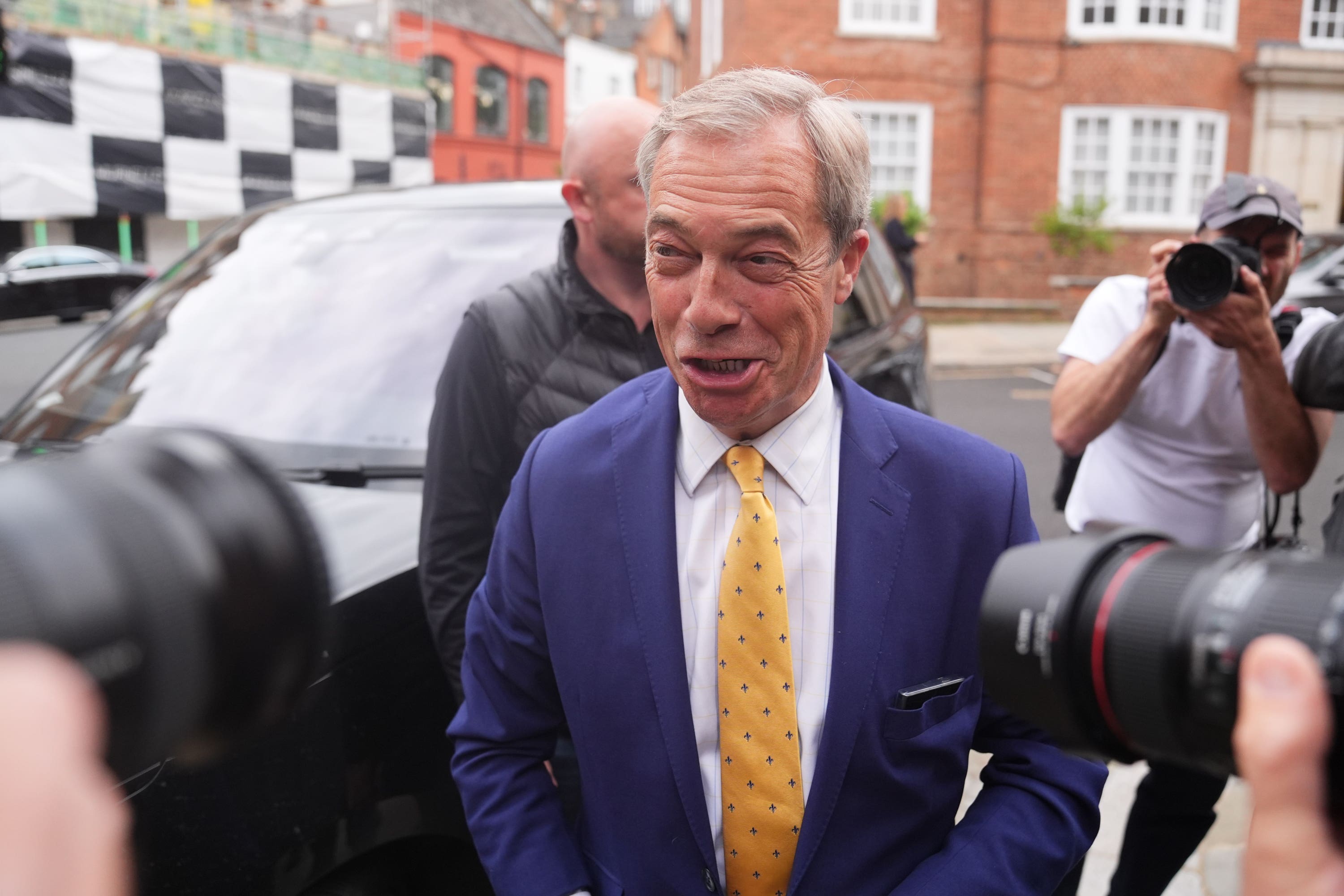As Farage slips past Sunak, could this be the end of the Tory party?
The prospect of a collapse in the Conservative vote was one of the reasons the prime minister decided to go to the country sooner rather than later. Electoral oblivion is now a very real possibility, says John Rentoul


Of course, it is just one poll, and it is within the margin of error – but the psychological effect of Reform UK going ahead of the Conservatives is inescapable. A Tory party already demoralised, desperate and prone to mistakes is likely to lose all hope.
Voters who assumed that a vote for Nigel Farage’s party was a wasted vote will think again. Reform’s rise in the opinion polls will be boosted, and soon other pollsters will report that the Tories have been pushed into third place.
The prospect of a collapse in the Tory vote, which was one of the reasons Rishi Sunak went for an early election, has suddenly come closer. The “Canada ’93” scenario, once used by older election nerds to frighten and thrill their younger colleagues, is now on the mind of every Tory and Reform activist – when the Conservative government in Canada was reduced from a majority in parliament to just two seats, defeated by a rival right-wing party... called Reform.
The immediate implication of such a collapse is an even larger Labour majority. Just as the main effect of the collapse of the Canadian Conservatives was to hand a solid majority to Jean Chretien, leader of the centre-left Liberal Party. Hence the sharp shift in Tory tactics in recent days, with Grant Shapps, the defence secretary, warning of the dangers of Keir Starmer winning a “supermajority”.
But the more the Tories and the Tory press warn of a “one-party socialist state” (the Daily Mail front page yesterday), the more former Tory voters are likely to think that, if the election is lost anyway, they might as well make their feelings known. And those feelings are known, in the form of other recent polls that found Farage the most popular candidate for the Tory leadership among people who voted Tory at the last election.
The second effect of the meltdown of the Canadian Conservatives was a realignment of the right, in that they were forced into a merger with their Reform rivals, who won 52 seats. Hence Farage’s talk of a “takeover” of the Conservative Party – encouraged by allies within the takeover target. Andrea Jenkyns, the Tory MP trying to save her new Leeds South West and Morley seat, put a photo of herself with Farage on the cover of a leaflet, with no mention of the word “Conservative” anywhere. Esther McVey, the “minister for common sense” and MP for Tatton, has been backed in a letter to her constituents from Simon Danczuk, who was the Reform candidate in the Rochdale by-election.
At this point, we should take a deep breath and note the reasons why the Tories might fend off the worst-case scenario. YouGov’s figures, putting Reform on 19 per cent of the vote and the Tories on 18 per cent, are within the margin of error (MoE). As Professor Philip Cowley said a few days ago: “Parties could appear to have ‘the Big Mo’ [momentum], even when it was really just MoE.”
Most polling companies have Reform a long way behind. On average, the gap between the Tories and Reform is six or seven percentage points. Only YouGov, Redfield & Wilton and PeoplePolling put the two parties within two points of each other.
It is also worth noting that Labour’s support is declining as much as the Tory vote is, albeit from a long way ahead, while the Liberal Democrats are rising, if not quite as fast as Reform.
And it remains the case that the way the first-past-the-post voting system works in the UK protects established parties, meaning that even if the Tories do really badly, they are likely to end up with between 50 and 100 seats; the Canadian system has fewer seats, which makes total wipeout easier.
Our voting system also makes it difficult for Reform to win more than three or four seats – the party’s vote is evenly spread, so it would need to get up to a 30 per cent share of the vote to have a chance of winning more seats than the Tories.
All of which makes Farage’s dream of a “takeover” still some way off. Leaving aside the legal oddity of Reform UK as a private company trying to buy out His Majesty’s official opposition. Or Reform’s actual policies. In the ITV debate last night, not only did Farage repeat his call to abolish the NHS, but he made up policy on live TV – when he was asked about Suella Braverman’s support for lifting the two-child cap on benefits and, after hesitating for a second, said he agreed with it: “We should encourage people to have families.”
Yet, however much sobersides types such as Prof Cowley (and me) might say that election coverage should not be so driven by opinion polls, “crossover” is a moment that reinforces trends that are already happening: Reform up, Tories down. Even if the main effect might be simply to increase Labour’s majority, leaving the Tories depleted but not broken – and Reform complaining about the unfairness of a voting system that gives them millions of votes and only one or two seats.
But there are three weeks to go, and the possibility of a truly dramatic change can no longer be ruled out.






Join our commenting forum
Join thought-provoking conversations, follow other Independent readers and see their replies
Comments